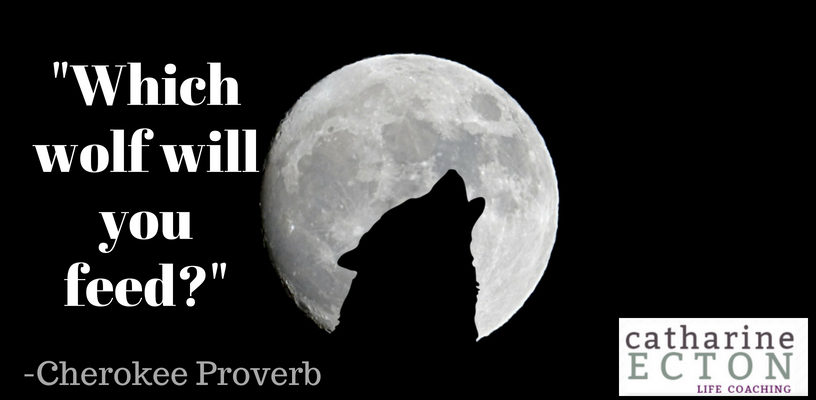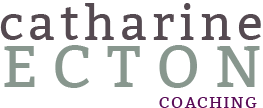
If you’ve led people or existed for any amount of time in any workplace, you get it: dealing with interpersonal conflict at work is an essential skill. Several of my life coaching clients have been on different sides of workplace conflict, with different results. Listen to Pam*, one of my clients, who had this experience:
I have had (conflict) with two co-workers. We are all female. I bring this up because I don’t think these interactions would have happened between men.
Looking back on the interactions, I think I contributed to the problem. In both situations, I thought I was being helpful and passing along information. They saw me as butting in and telling them what to do. The end result was very different.
The first individual confronted me in my cubicle. I was on a deadline and she came in with some harsh words. Our supervisor had to mediate the conflict. To this day, we have an uneasy truce.
The second individual pulled me aside, and asked if we could talk in private. We had an emotional conversation with positive results. We work well together and are able to say, “hey, you did x and it really bothered me.”
Together with Pam, I came up with 10 “rules of the road” for managing workplace conflict:
- Don’t hold a grudge. Move on. We all say and do things we regret.
- Let go of your need to be right. Ego-driven leadership is built on the need to be seen as being right. Great leaders go beyond this. They develop the ability to have an opinion, yet hold that opinion lightly. This doesn’t mean that they lack conviction. What it means is that they can suspend their conviction in order to really listen to others, learn and create an encompassing solution. They ask themselves, “how could the opposite of my story actually be as true, or truer than my story?”
- Talk privately with your co-worker as soon as the offending action takes place. Mistakes are easier to correct when we know we are making them.
- Really listen. Great leaders are great listeners who listen until they fully understand another’s point of view and until the other believes their point of view is understood. They listen from the heart and gut, trying to understand the feelings of those involved and what it is that all stakeholders really want. (Read my previous post, Tap into Your Horse Sense to learn more about how to build Emotional Intelligence.) Listening leaders can often see new paths to resolution that a non-listening leader can’t see.
- Be mindful. Are your actions impacting others and causing conflict? The only person you have full control over is yourself. Start by asking yourself what you can change. Then ask: if I look back on this issue in 25 years, what will I wish I had done differently? Will it really matter all that much?
- It’s not what you say, it’s how you say it. Note how pulling someone aside and talking in private had vastly different effects than confronting someone loudly in public.
- Commit to finding solutions for everyone involved. Many leaders approach workplace conflict with a win/lose (compete) or lose/lose (compromise) solution. There is a better way. Although it appears to everyone involved in the conflict that “there is not enough” for everyone to have what they most want, the transformational leader does not give in to the common beliefs around scarcity. S/he asks, how can our collaboration create enough of what we all want so that we can all get what we most want?
- Feed the good wolf. There’s a Cherokee story about two wolves, and it serves as an excellent parable for workplace conflict. It goes something like this:The battle is between two ‘wolves’ inside us all. One is evil. It is anger, envy, jealousy, sorrow, regret, greed, arrogance, self-pity, guilt, resentment, inferiority, lies, false pride, superiority, and ego.The other is good. It is joy, peace love, hope serenity, humility, kindness, benevolence, empathy, generosity, truth, compassion, and faith.You might ask, “Which wolf wins?”The answer: “the one that you feed.”What you focus on or feed, you get more of in your life. We mistakenly believe that “taking things seriously” is always the answer, so we focus on these negative interactions. This approach only activates our fear mechanisms and limits our capacity for creative, innovative thinking.
- Be courageous. Is there some underlying issue you don’t want to face? When we don’t fully face the key issues of our lives, we keep facing the same conflict over and over again. Great leaders face the deepest issues in their lives. They face them squarely, courageously and humbly. Is there something about this issue you’re not fully facing?
- Sometimes, you need a neutral third party. Consider bringing in someone not connected to the situation. We typically vent to friends, relatives or colleagues who have a vested interest in the outcome … so we’re not getting fully objective advice.
Career Coaching for Workplace Conflict
 As a life and career coach, I believe we can change our lives one day at a time. We’re not broken, and we don’t need fixing. We have everything within ourselves to create the life we’ve always dreamed of. Career coaching with me, Catharine Ecton, is all about changing the way you look at everyday circumstances, helping you blast past roadblocks and build new skills so you can live your best life, now.
As a life and career coach, I believe we can change our lives one day at a time. We’re not broken, and we don’t need fixing. We have everything within ourselves to create the life we’ve always dreamed of. Career coaching with me, Catharine Ecton, is all about changing the way you look at everyday circumstances, helping you blast past roadblocks and build new skills so you can live your best life, now.
Even if you’re already successful, hiring me as your career coach can help you up-level things at work. In fact, some of the clients who get the most out of coaching are the ones who have achieved amazing things in some areas of their lives … but know they could be better in others. (Read testimonials from some of my happy clients here.) Let’s work together to make sure you are living your best possible life – and showing up as the best version of you.
Contact me for a complimentary, no-obligations life coaching consultation to discuss the possibilities. Or use the Appointment Scheduler and pick a time that works for you. I coach 90% of my clients over the phone, and my DC-based Life Coaching clients have the option of meeting with me in person. I look forward to hearing from you.
*Names have been changed to protect client confidentiality.

Comments are closed, but trackbacks and pingbacks are open.